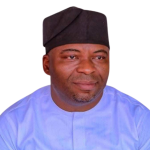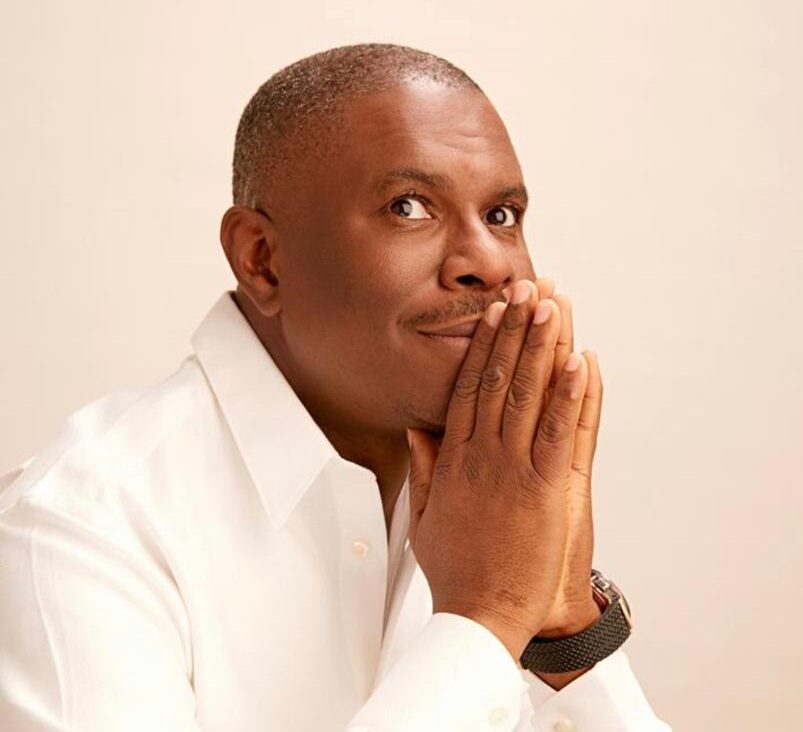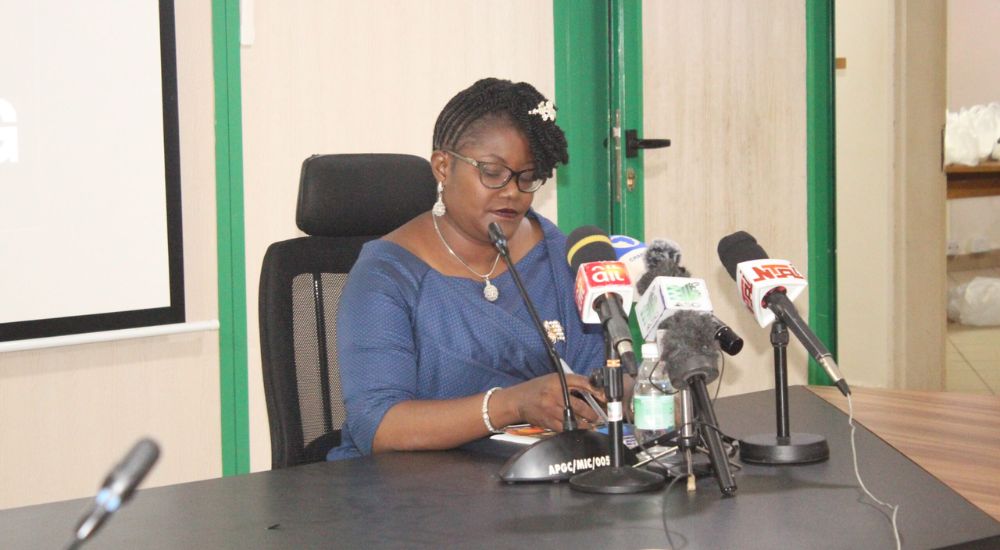To be precise from the onset, it is apt to posit that the centrality, omnipresence and ubiquitous nature of petrol in Nigeria has elevated it to the status of a deity in our daily lives. We revere this deity and pray that it never unleashes mayhem on us. Any scarcity or increase in the price of this deity brings untold hardship to Nigerians and we are eager to appease it at any cost. We are hugely dependent on this deity because it is the dominant form of energy that powers our way of living. We are a petrol-fuelled economy. We depend on petroleum products for transportation, domestic generation of power for homes, small and medium businesses, and mechanised farming.
Over the decades, we appeased this deity with a sacrifice called a petrol “subsidy”. Recently, the cost of this sacrifice put a knee on the neck of Nigeria, threatened her with strangulation. To breathe and survive the strangulation, the new administration took a plunge and ended the sacrifice. As expected, with the stopping of the perennial sacrifice the high priests and guardians of the deity are livid and predicting doom and damnation to Nigeria. The deity has unleashed severe punishment on the nation . The increase in petrol price has created hyperinflation, a decrease in real GDP, a cost-of-living crisis, spike in food prices and a loss of disposable income for the citizens. The situation as it stands is precarious . Yet is not intractable. Having opted to stop the deity’s sacrifice, we must work hard to tame the deity – for a man who wants to wrestle with his “deity” must prepare for the battle.
Petrol is a crude oil derivative. Fortunately we have it in abundance. Most Nigerians expect that we should enjoy some benefits and should be a master of the petrol deity. Unfortunately, our history shows that this has not been the case. Instead of mastery over petrol, we have become its slave. This anomaly is directly linked with our failure to refine crude oil for local consumption over the years. The failure of the government to create the right framework to attract investment in refining of crude or resolve the decades-long collapse of refinery infrastructure has left us at the mercy of others. Other people process our oil and determine the price of finished products. For too long, we relied on imported petrol, subsidised the costs and consumed it even when there is no need . So we became almost addicted to it. This created in the minds of our people some entitlement mentality. And we must worship at the altar of petrol as long as we get it cheaply.
Successive governments fed the beast of subsidy, which made it grow bigger until it finally threatened our economic existence. Every government discussed the removal of subsidies, but none dared to try because of fear of the consequences. Goodluck Jonathan administration tried but was forced to reverse it. For so long , most Nigerians- especially those in the low income brackets , saw cheap, subsidised fuel as the only benefit they derived from a morally bankrupt and corrupt Nigerian state. However , when they woke up recently to the sleaze and alleged corruption of the subsidy regime, some started accepting the idea of the end of subsidies. At least to end the corruption anatomy of the so-called subsidy. But removing subsidy has left the price of petrol in Nigeria to the vagaries of fluidity and fluctuation of prices in the international market.
There are five main factors that determine the price of petrol in the international market, and these influence the price of petrol in Nigeria. They include: the cost of crude oil from which petrol is refined ; the cost of the product quoted on Platt, a price benchmark denominated in USD; the freight rate (cost of hiring a tanker to bring the product from where it is refined to where it is used, in our case West Africa); the littering expenses from transhipment and multiple handling; and Naira/ USD exchange rate. Any change in one or a combination of these factors will affect the petrol price in Nigeria. With subsidies gone, we are not protected from these events’ harsh realities. We do not have control over these factors and forces that determine the price of petrol. Therefore, we are at the mercy of this deity.
To survive, we must look for an alternative; fortunately, these alternatives exist though some may be more expensive . The government and our universities have been reluctant to research and explore these alternative energy sources for some inexplicable reasons. There are several alternatives to reduce or replace the use of petrol in the country. These alternatives can help diversify energy sources, promote sustainability, and mitigate the impact of fossil fuel consumption on the environment. Nigeria has significant natural gas reserves. Encouraging the use of compressed natural gas (CNG) and liquefied natural gas (LNG) as vehicle fuels can reduce the dependency on petrol for transportation. Promoting the production and use of Ethanol and biodiesel can provide cleaner alternatives for petrol in transportation.
Promoting hybrid vehicles, which combine internal combustion engines with electric motors, can be a transitional step towards full electrification. Encouraging the adoption of electric vehicles (EV)can significantly reduce petrol consumption. This involves building the necessary EV charging infrastructure and providing incentives for EV adoption, such as tax benefits and subsidies. Investing in renewable energy sources such as solar, wind, and hydroelectric power can reduce the dependency on fossil fuels for electricity generation, freeing up more petrol for other uses. Enhancing public transportation systems, such as buses and trains, can reduce the number of individual vehicles on the road and lower overall petrol consumption.
Past administrations ignored these alternatives, and we hope this current administration will focus on them. The petrol price upward swing is not going away too soon. This is a justification for some proceeds of subsidy removal to be applied to investment in viable energy sources and social services like education, health, and affordable public transportation. It is a welcome development that this administration is listening to the yearnings and demands of the citizens. I salute Mr President for calling for a review of the proposal to give N8,000 per month to 12m poor Nigerians and commend the National Economic Council chaired by the Vice President for coming up with an alternative palliative strategy.
I will argue that although there is room for a well-considered palliative scheme for the poorest among us, that must not be the focus, for palliative is merely short-term measures to ameliorate the sufferings, whilst developing alternative energy is the long-term solution and must be the focal point of any government intervention. I cannot emphasise enough the importance of energy production in any modern economy. Production of goods and services for local use and export is fuelled by energy.
In the meantime, there are a few things the government must do to cushion the negative impact of a hike in the price of petrol. First, it must provide proper Communication. The government is losing the battle of properly framing this petrol price increase to its advantage. The dominant frame in the public sphere is suffering – all our people are seeing and hearing is suffering. The government’s spin doctors must rise to the occasion and win the battle for the hearts and minds of the people. This is crucial in transitioning from dependence on petrol deity and maximising alternative energy regime . Secondly , even though the government must allow market forces to determine the price of petrol, it must provide a regulatory framework and infrastructure to influence the market. Therefore, I advocate for adequate regulation, price monitoring, price intelligence (Indicative price versus market price), and some quasi-interventions when necessary. This is important, especially now, because we are still a petrol-dependent economy even though we have deregulated the system and removed subsidies.
Third, implementing energy efficiency measures in industries, buildings, and transportation can help reduce overall energy consumption, including petrol and raising awareness about the benefits of alternative fuels and sustainable practices can encourage individuals and businesses to make environmentally conscious choices. Fourth, supporting businesses, especially SMEs, at this challenging time with the petrol price crisis the country is facing. The government must provide a tax holiday and other incentives to help most of these businesses survive. These businesses are central to our economic activities and must be protected from collapse.
Furthermore, we must admit that the current challenge in Nigeria requires a bold energy policy and a seriously informed economic policy. This time, as hard as it may be on the citizens, provides an opportunity to get things right and push Nigeria towards the path of industrialisation and growth. Government must seize this opportunity to make informed socio-economic choices to cut Nigeria off from continued service of a petrol deity we do not even know. It is important to note that transitioning to alternative fuels and energy sources requires careful planning, investment, and collaboration between the government, private sector, and citizens. Additionally, these alternatives’ specific suitability and feasibility may vary depending on regional factors and infrastructure capabilities.
In conclusion, we must do whatever it takes not to go back to the subsidy. It is an ill wind that blows no one any good. This is a time for everyone to unite and push Nigeria to the next level. It is not a time for scoring cheap political points and doing nothing. Desperate times call for desperate measures. Our collective duty is to provide an energy transition that is sustainable and pulls us out of the shackles of the petrol deity once and for all times.























Leave a comment